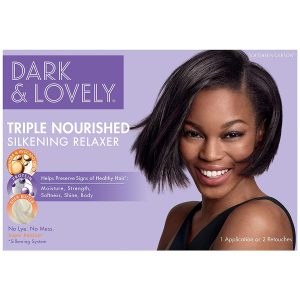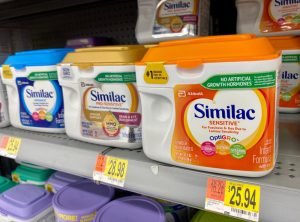This page will examine civil lawsuits involving sexual abuse of juvenile inmates at Ocean County Juvenile Detention Center in New Jersey. During its decades in existence, countless juvenile detainees at the Ocean County JDC have been the victims of sexual abuse by staff members at the facility.
Thanks to new laws in New Jersey, these victims are now able to fight back with a civil lawsuit against Ocean County. Victims who bring a successful abuse lawsuit can get significant financial compensation and settlement payouts. If you have a potential case, contact our NJ sex abuse lawyers today at 800-553-8082 or get a free online consultation.
About Ocean County Juvenile Detention Center
The Ocean County Juvenile Detention Center (OCJDC) is a short-term juvenile detention facility for youth inmates between the ages of 7 and 18. OCJDC is located on Sunset Ave in Toms River, NJ. OCJDC houses juveniles who have been charged with criminal offenses and are awaiting adjudication and sentencing. This means that the average length of stay for detainees at OCJDC is comparatively short.
OCJDC provides a full range of rehabilitative and support services to juvenile inmates. These include behavioral health services such as addiction treatment, as well as a mandatory educational program. Although the stated goal of OCJDC is rehabilitation rather than punishment, the facility is operated very much like a prison for juveniles.
Sexual Abuse of Juveniles at OCJDC
New Jersey’s state-level juvenile detention facilities (e.g., New Jersey Training School, NJ Medium Security Juvenile Facility, and NJ Female Secure Facility) are some of the worst in the country in terms of inequity, abuse, and neglect. OCJDC is not a state facility, but rather a county-level juvenile detention center. However, sexual abuse of juvenile inmates at OCJDC and other county juvenile detention centers in New Jersey has been a major problem for many decades.
Thanks to recent investigations and lawsuits, we now know that sexual abuse of juvenile inmates in New Jersey detention facilities was widespread. Countless juvenile inmates have been sexually abused and exploited at OCJDC over the last several decades. In most cases, this abuse was perpetrated by the correctional officers and staff members at the facility who were supposed to be protecting the inmates. These abusers exploited their positions of authority and their access to the juvenile inmates to force and coerce them into sexual acts that they were not legally capable of consenting to.
Correctional officers and other staff at OCJDC have regular unsupervised and unmonitored access to juvenile inmates in very private and vulnerable settings, such as during strip searches and showers. This lack of supervision and easy access to victims gives abusers the ability to victimize juvenile detainees without fear of consequences. Staff who commit sexual abuse at OCJDC use a combination of threats and perks to coerce juvenile detainees into performing sexual favors. Inmates who comply are rewarded, while inmates who refuse are threatened with retribution.
One of the biggest shortfalls at OCJDC and other juvenile facilities has been the total failure to properly investigate complaints of sexual abuse and take appropriate action. Any complaints about abuse or inappropriate conduct by staff were regularly suppressed instead of being taken seriously and investigated.
Institutional Cover-Ups and Culture of Silence at OCJDC
One of the most disturbing patterns that has emerged from decades of abuse reports at the Ocean County Juvenile Detention Center is the pervasive culture of silence and concealment that allowed abusers to operate unchecked. Survivors of sexual abuse at OCJDC have described how staff members who engaged in misconduct were often protected rather than punished. Complaints were frequently ignored, discouraged, or outright buried. In some cases, juvenile inmates who reported abuse were punished, disbelieved, or transferred, while the abusive staff member remained on duty with full access to other vulnerable youth. That just cannot happen.
This systemic failure was not limited to individual bad actors. It reflects a broader institutional collapse of accountability, where internal investigations were either nonexistent or deliberately superficial, documentation was manipulated or missing, and complaints were funneled through people with strong incentives to minimize liability rather than protect children. The result? OCJDC became a place where staff knew they could act without consequence, because the system itself was more concerned with protecting its reputation and its employees than protecting kids.
Ocean County and its Juvenile Services leadership had the power and responsibility to break this cycle by implementing meaningful oversight, requiring external reviews, and establishing real whistleblower protections. Instead, they allowed a culture to fester where abuse was predictable, preventable, and ultimately ignored. This is not just negligence. It is cold institutional betrayal. And under New Jersey law, that betrayal opens the door for survivors to seek justice through the civil courts.
Holding Ocean County Liable in a Civil Lawsuit
OCJDC is under the control and authority of the Ocean County Department of Juvenile Services. This means that Ocean County had a legal duty to take serious steps to keep kids at the OCJDC safe from sexual abuse and assault. That means not just watching out for inappropriate behavior from staff, but also making sure detainees are protected from each other. To do that, the county needed to put solid policies and procedures in place to prevent abuse from happening in the first place.
However, there is growing evidence that Ocean County (and many other counties in New Jersey) didn’t live up to that responsibility. Reports of abuse were often ignored or handled poorly by both the facility staff and state officials. There were big problems, like not enough staff supervision, weak or missing policies, poor training, and a lack of real safety measures.
Because of these serious failures, Ocean County can be held liable in civil lawsuits brought by victims of abuse. People who were sexually abused while held at OCJDC might have the right to sue and seek compensation for the harm they went through due to the county’s failure to protect them.
Statute of Limitations for New Jersey Sex Abuse Lawsuits
Under New Jersey law (N.J.S.A. § 2A:14-2a), individuals who were sexually abused as children now have an extended window to file civil lawsuits:
-
Victims of childhood sexual abuse can file a lawsuit until they turn 55 years old, or within seven years of discovering the abuse-related harm, whichever is later.
-
For those who were 18 or older at the time of the abuse, the statute of limitations is seven years from the date of abuse or from when the resulting injury is discovered.
This updated legal framework gives survivors more time to recognize the psychological and emotional damage caused by the abuse and pursue accountability, which is needed in institutional abuse cases involving suppressed memories, fear of retaliation, or long-term trauma.
Potential Settlement Value of OCJDC Sex Abuse Lawsuit
How much someone might get from a lawsuit against Ocean County for sexual abuse at OCJDC really depends on a few important things:
How Strong the Evidence Is: Even if it’s just the survivor’s word, that can be enough to prove abuse. However, if there are witnesses, documents, or a history of similar problems at the facility, this can significantly strengthen the case. It is also crucial to demonstrate that the staff or system dropped the ball, such as repeated failures in safety policies or a lack of genuine effort to prevent abuse.
How Serious the Abuse Was: The more severe the abuse and its impact, the higher the potential payout. If the survivor was diagnosed with PTSD, depression, anxiety, or other emotional issues, that typically increases the settlement. But even without a formal diagnosis, many survivors still have powerful stories, and expert testimony can help explain the long-term emotional effects.
The Victim’s Age: Younger survivors often get larger settlements because the trauma can seriously affect their development, education, relationships, and future in deeper ways.
Naming Your Abuser Is NOT Required
Many people who were sexually abused or assaulted at juvenile facilities like OCJDC think they have to know the name of the staff member who abused them in order to take legal action. But that’s actually not the case. You don’t need to identify your abuser by name to file a civil lawsuit.
In fact, most survivors who file these types of lawsuits can’t name the person—they usually can only give a general description of what the person looked like or recall certain details about the situation. That’s totally okay. A basic description of the abuser or the circumstances is sufficient to initiate the legal process.
Once the case is filed, your legal team can conduct a thorough investigation during the discovery phase. They can request items such as staff schedules, surveillance footage, and internal reports to help determine exactly who was involved.
Now, if you do happen to know the name of the person, that can definitely make your case stronger, especially if that staff member has a history of abuse, past complaints, or has been criminally charged before. That kind of pattern can help prove the facility was negligent in keeping you safe.
Contact Us About OCJDC Sex Abuse Lawsuits
We are accepting Ocean County Juvenile Detention Center sex abuse lawsuits. Call us at 800-553-8082 or contact us online.









